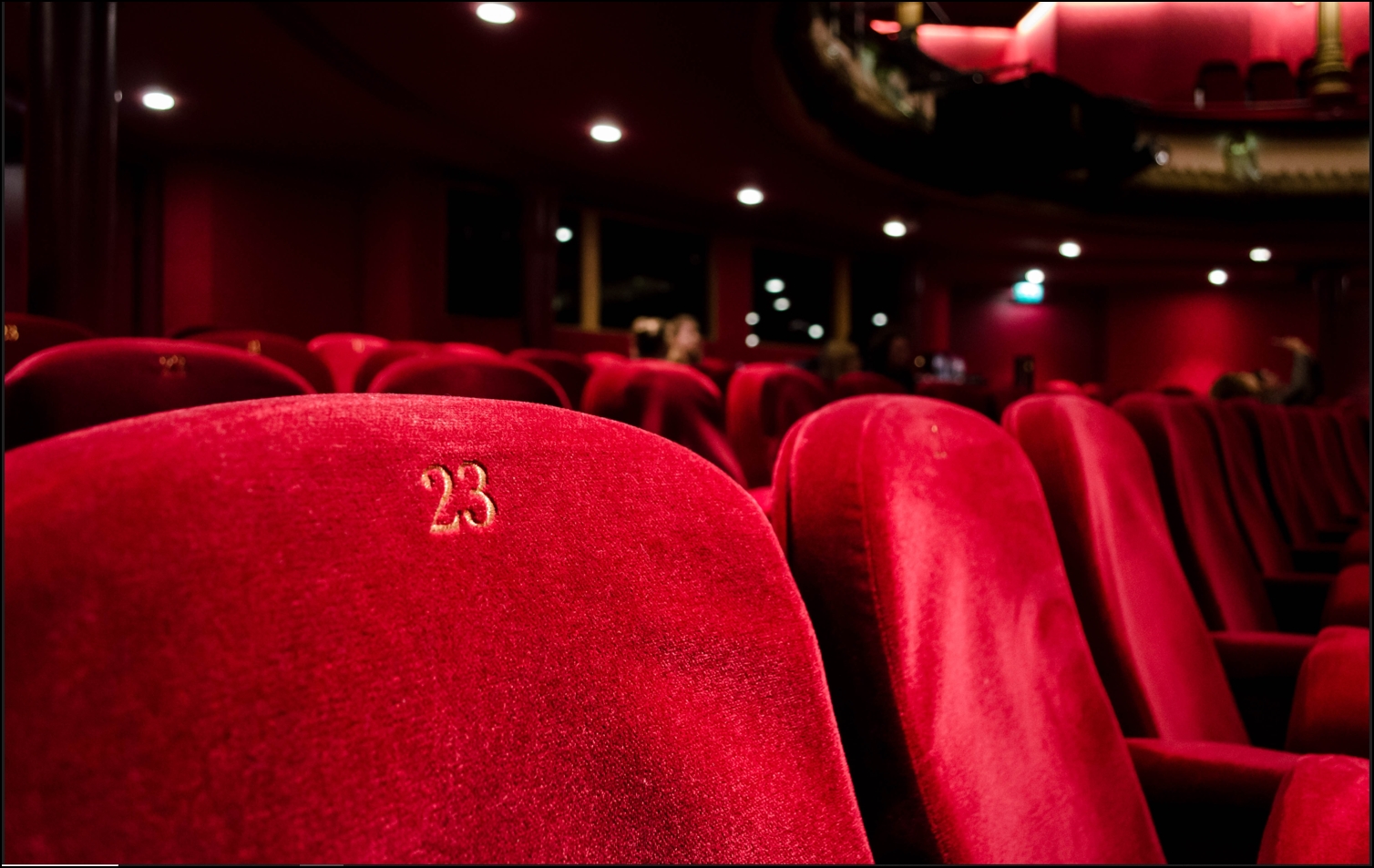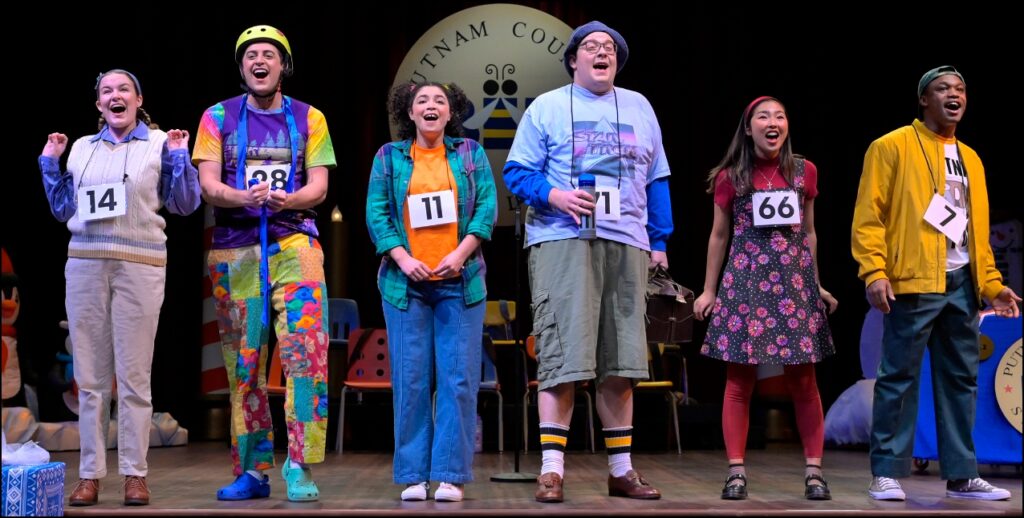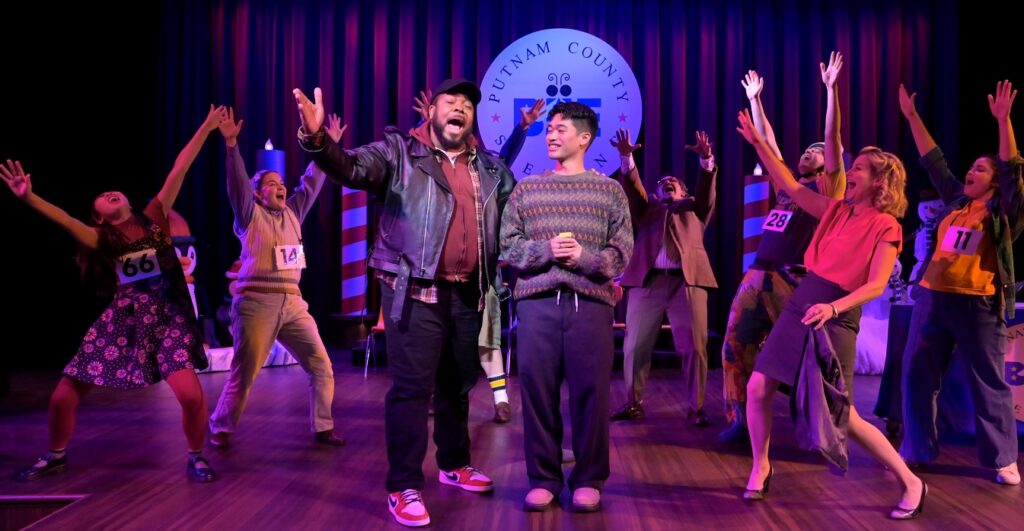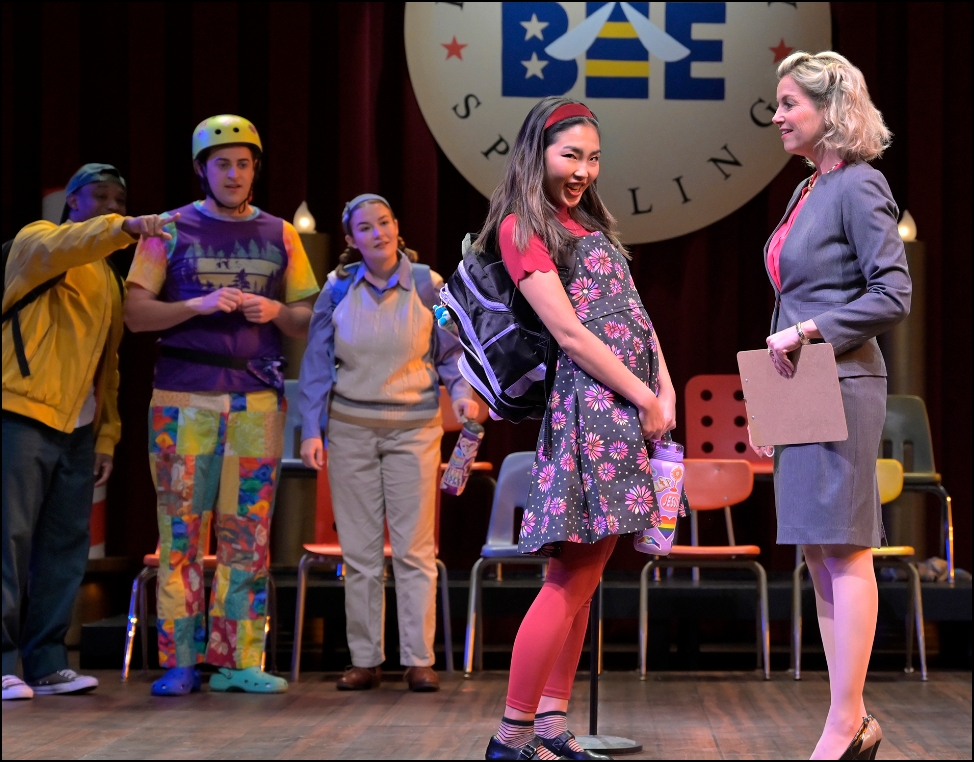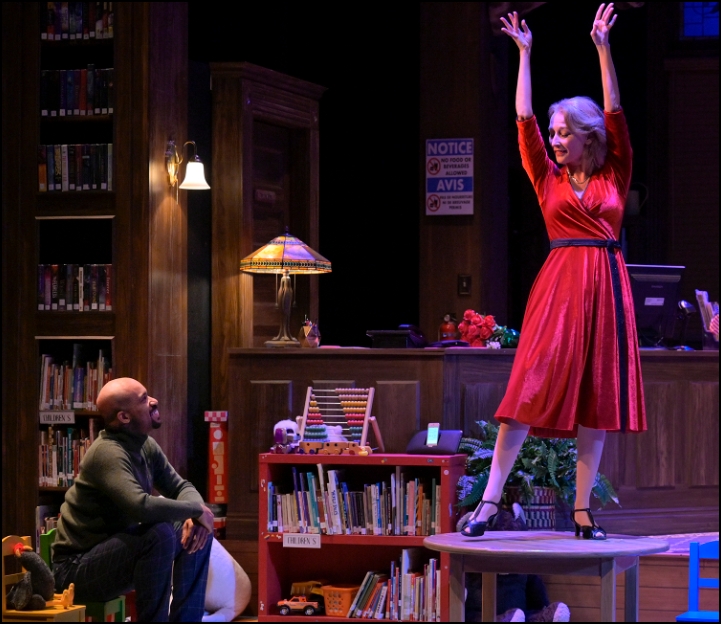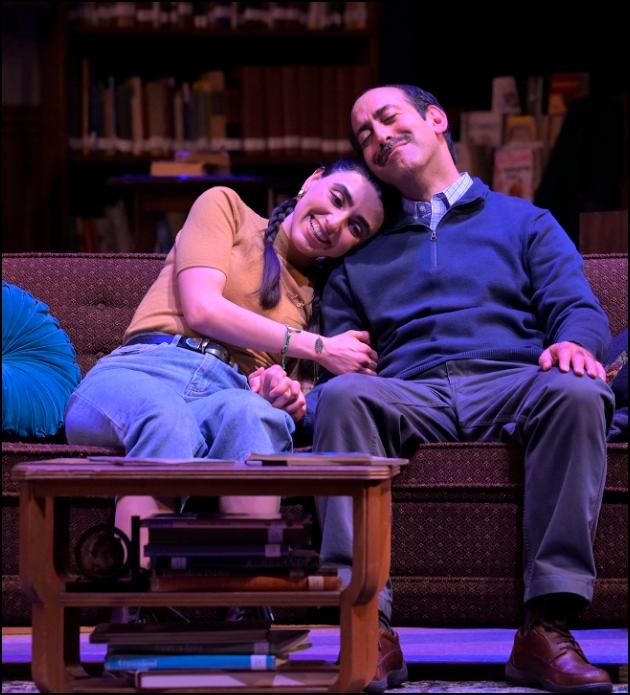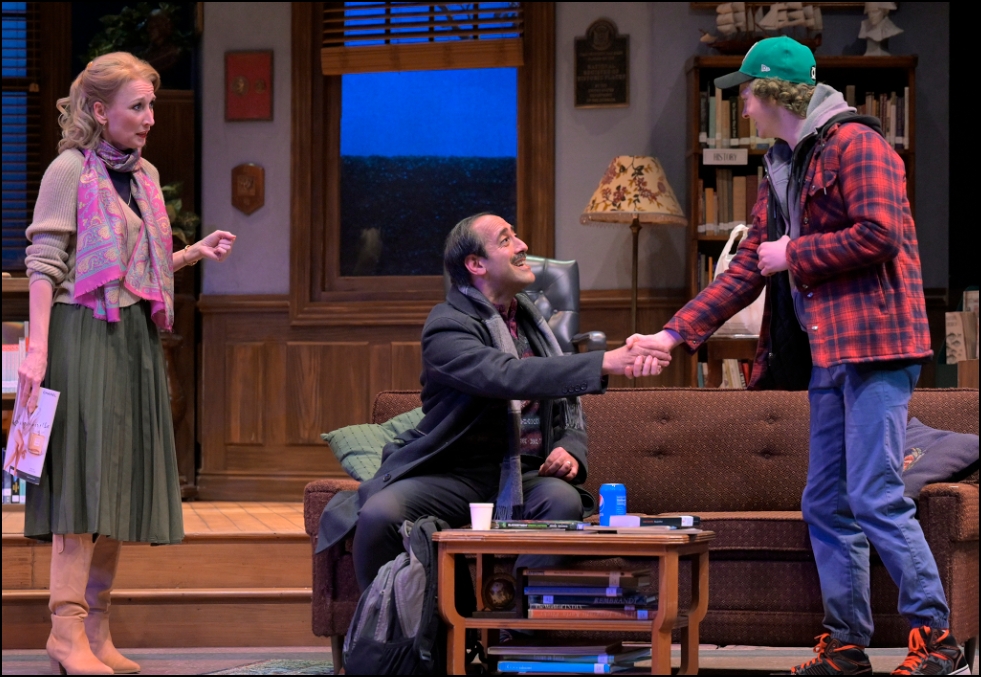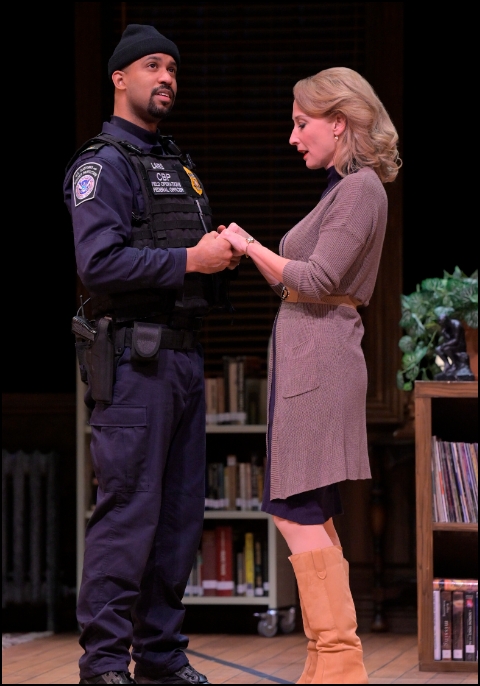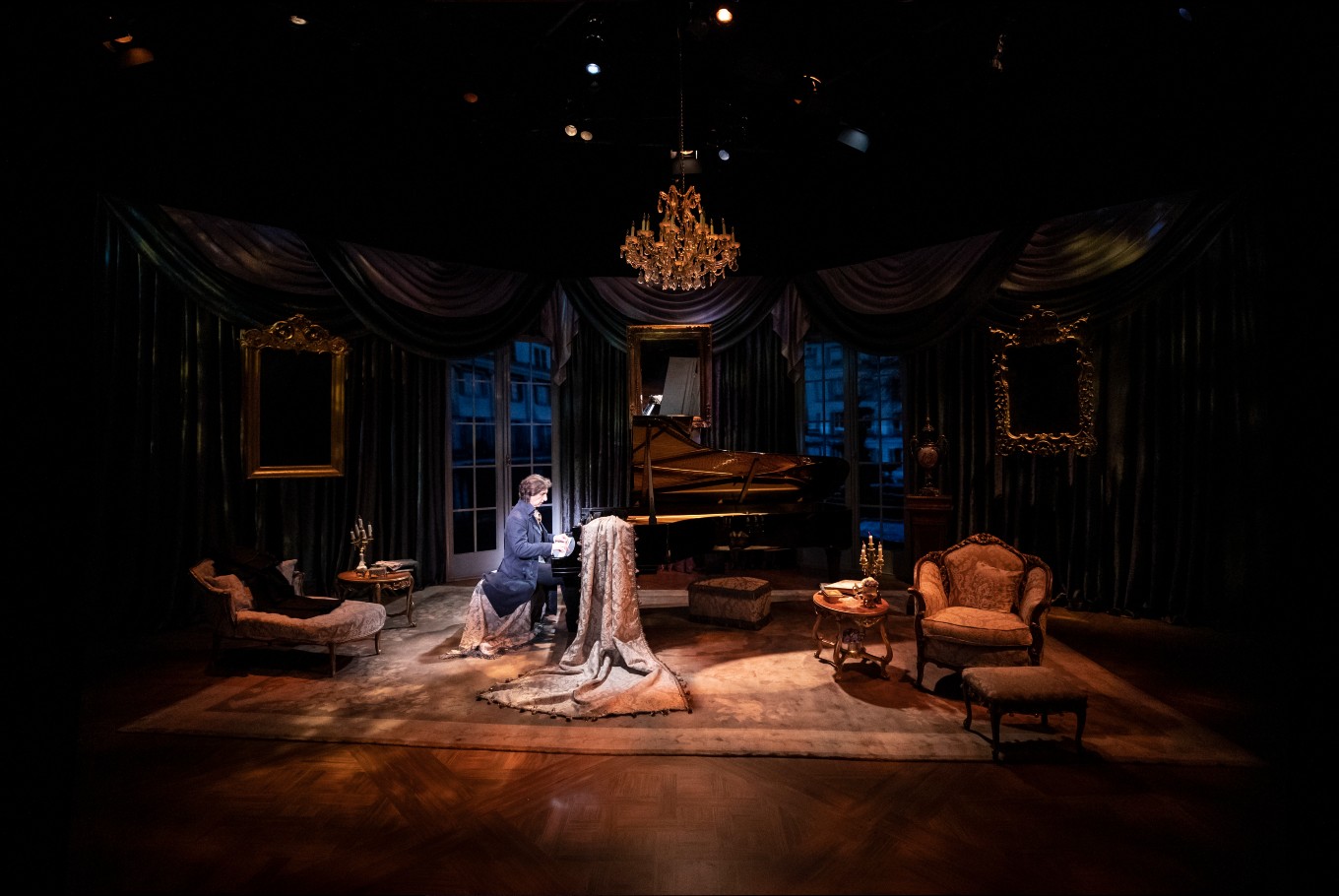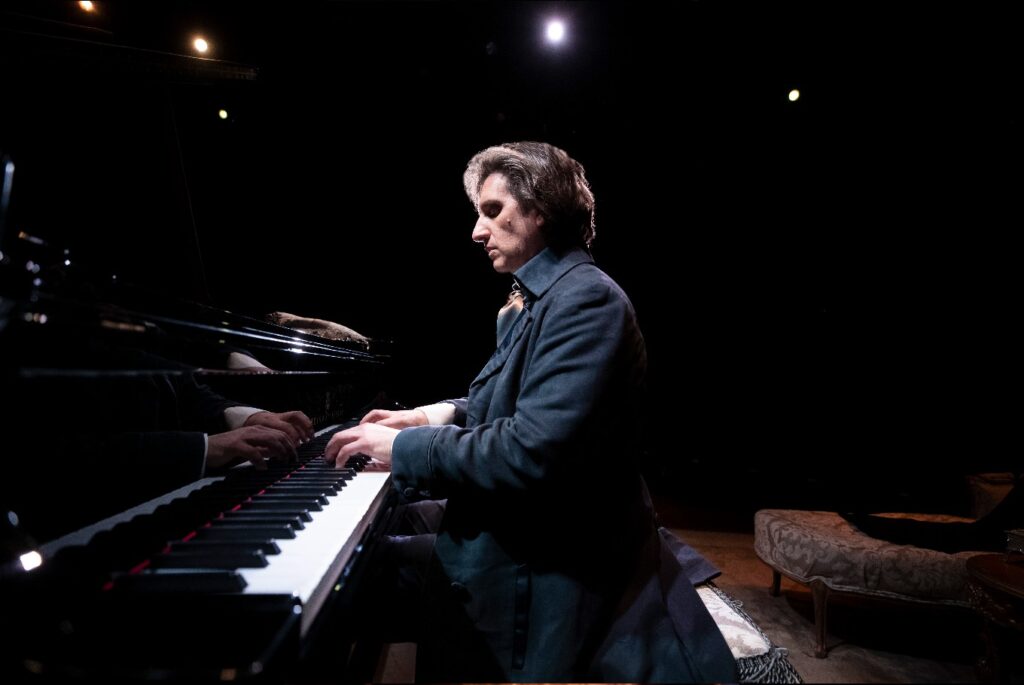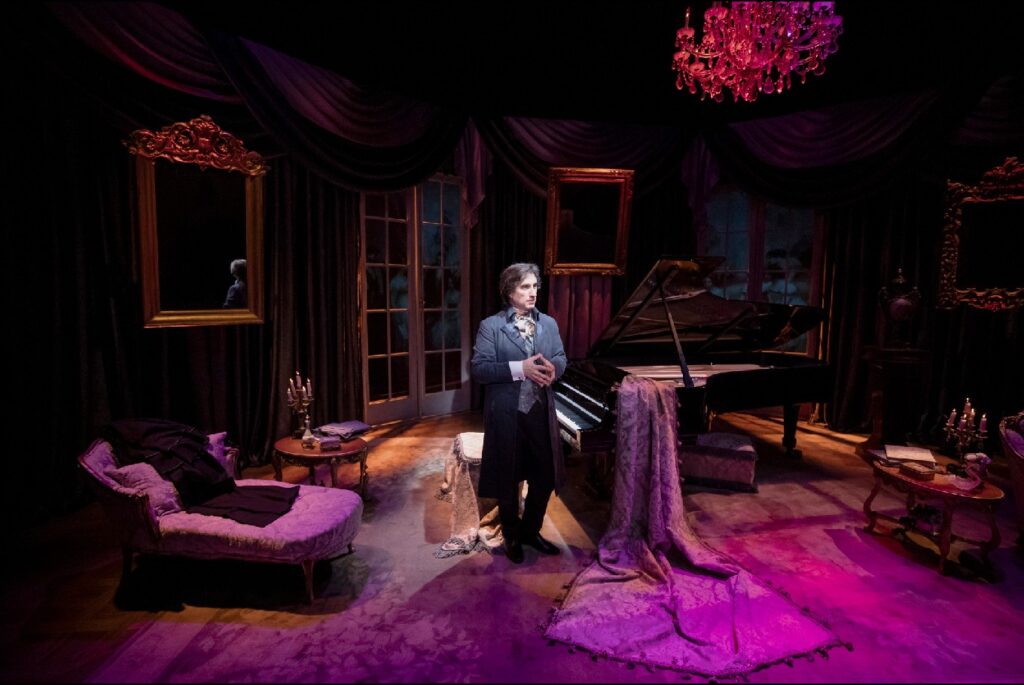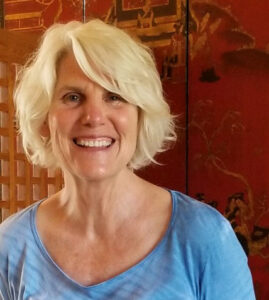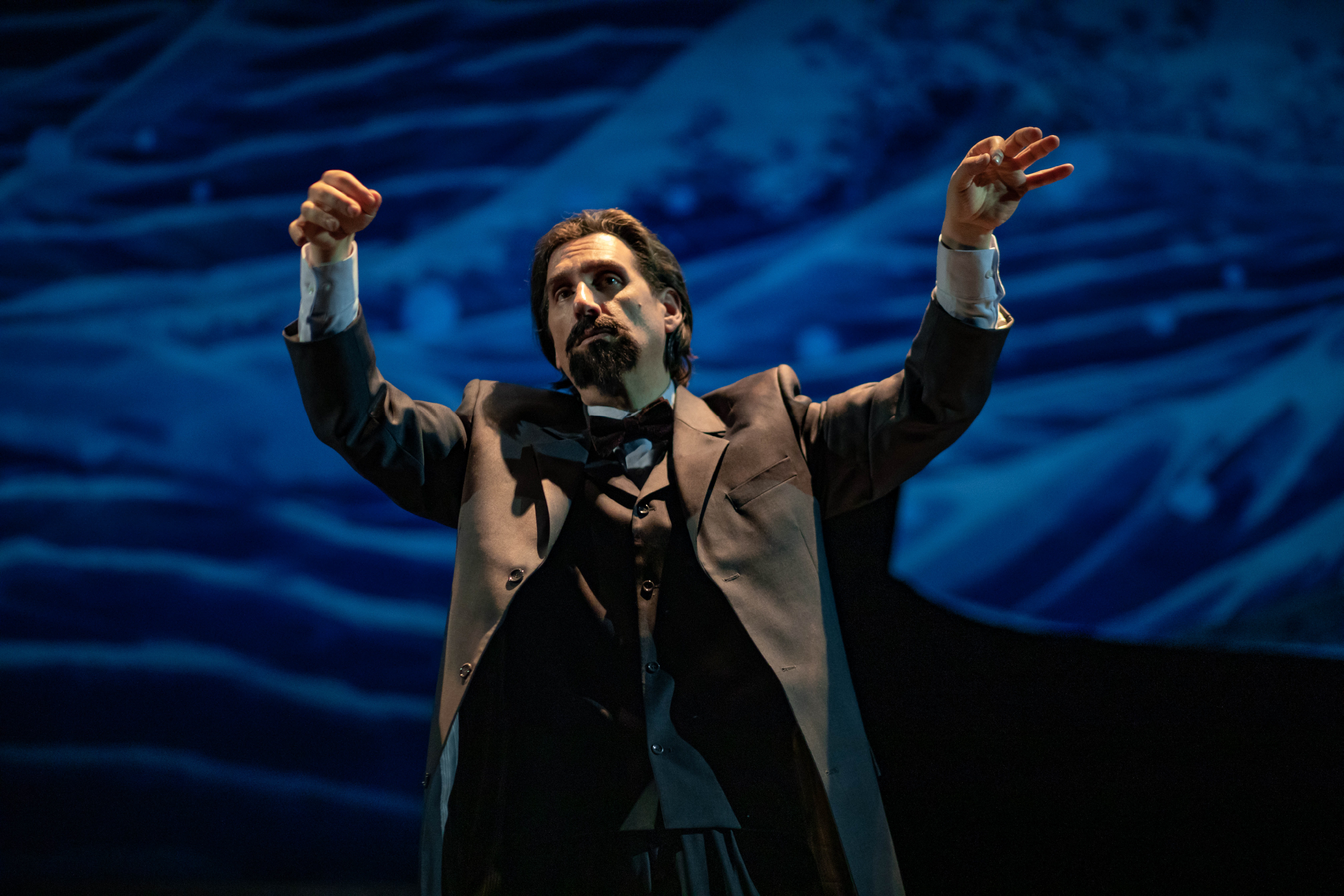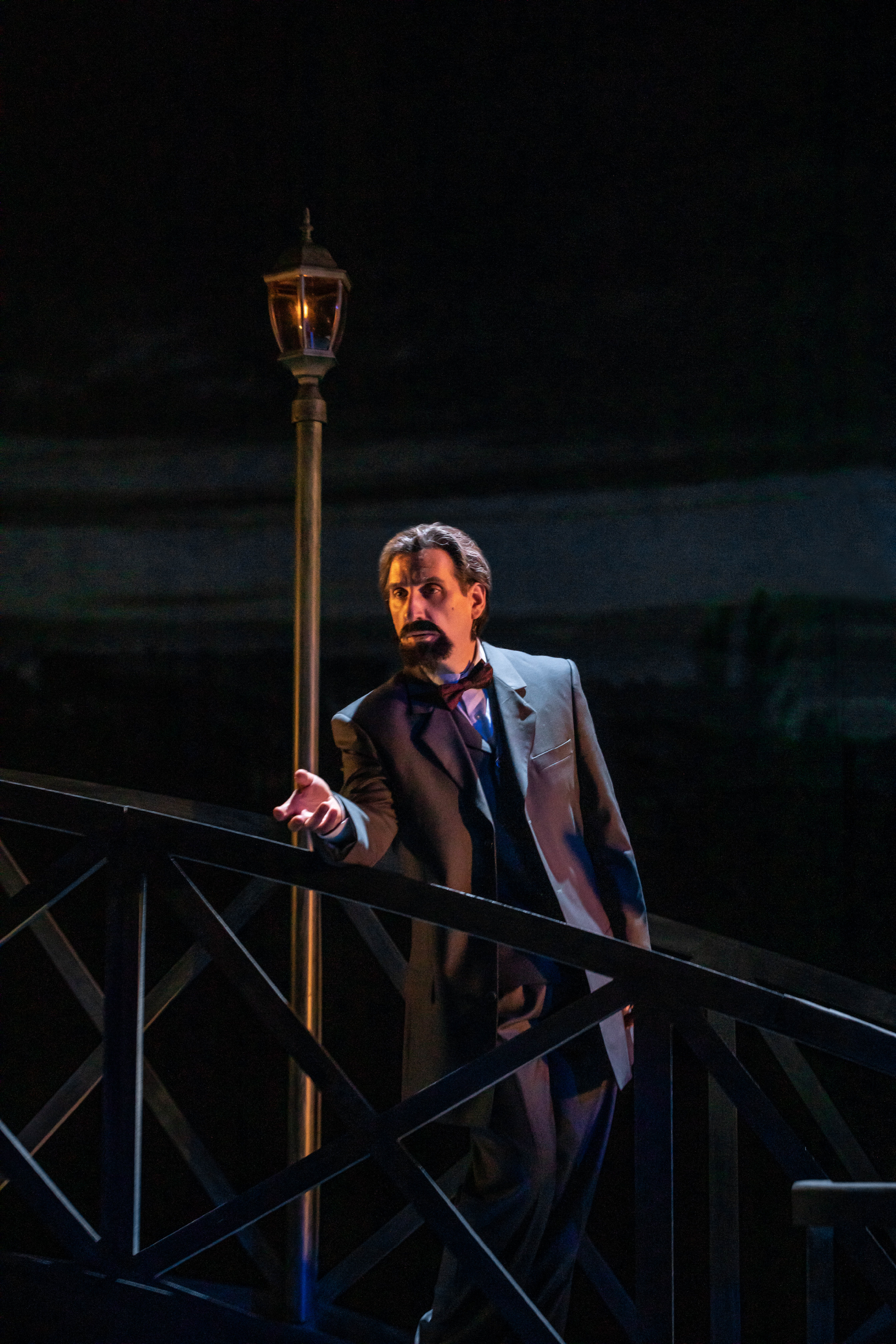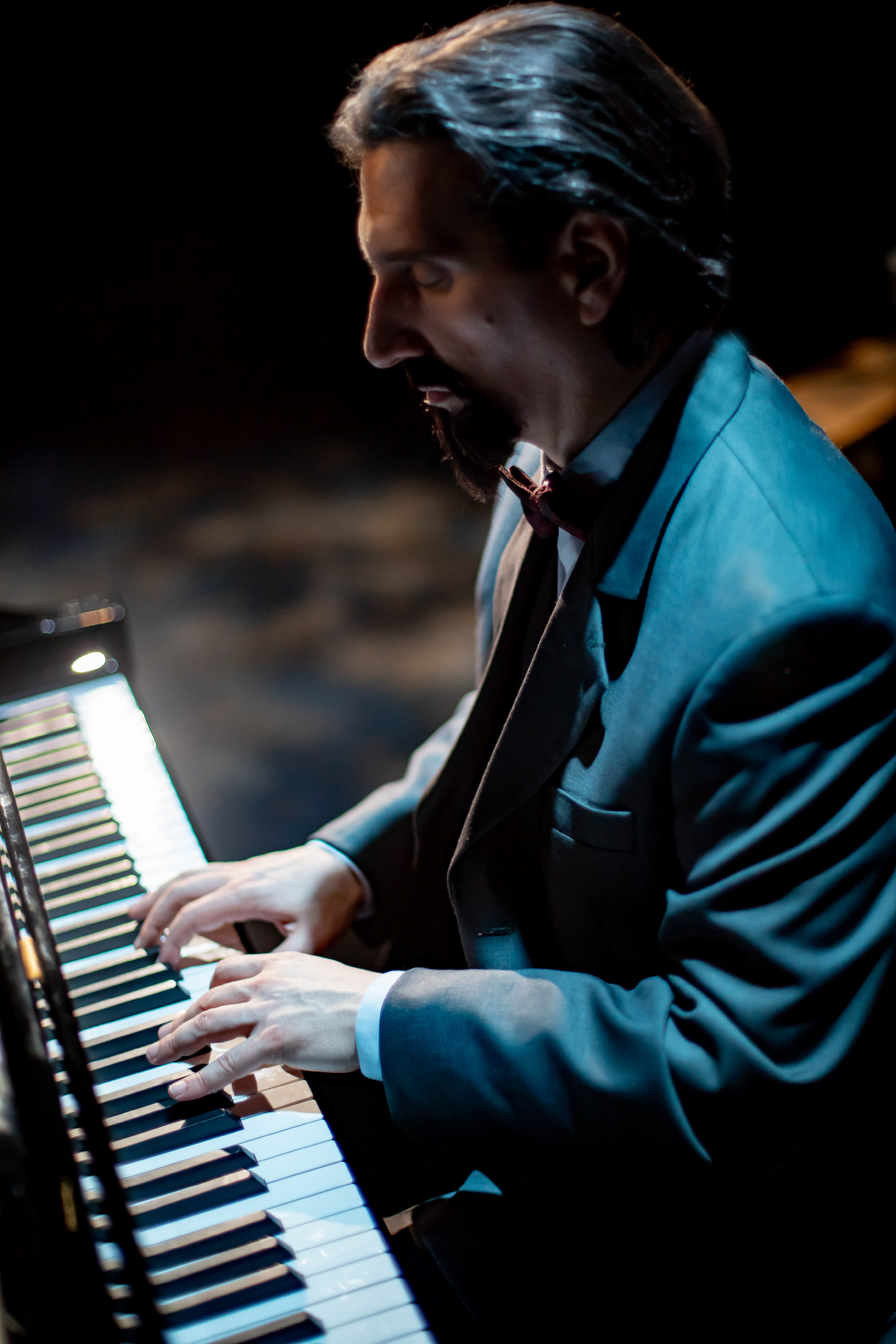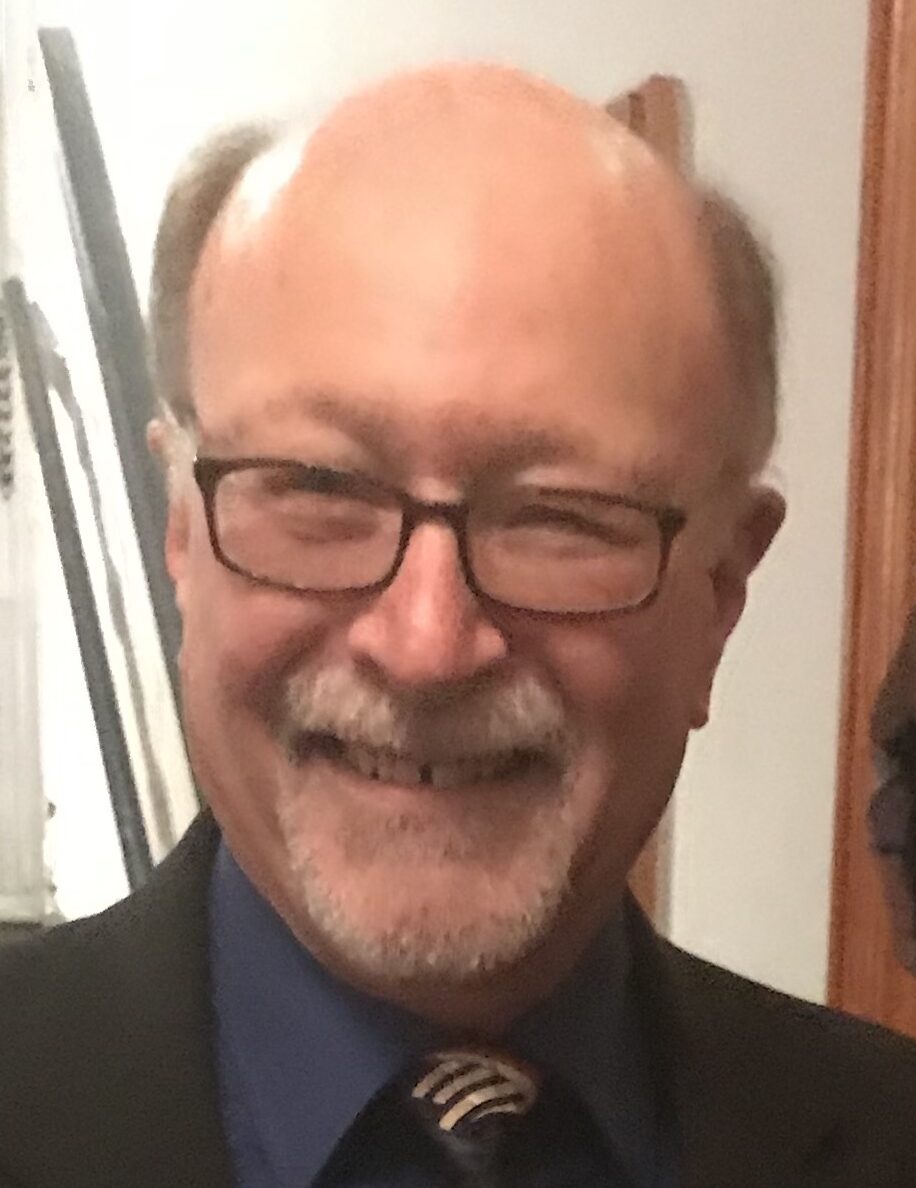By Joanne Engelhardt
 Combine a half-dozen versatile actors, a maestro of the keyboard (Bill Liberatore) and TheatreWorks Silicon Valley’s long-time artistic director Robert Kelley (now retired), and the result is Being Alive: A Sondheim Celebration — a concoction that makes for a pleasurable two hours of theatre.
Combine a half-dozen versatile actors, a maestro of the keyboard (Bill Liberatore) and TheatreWorks Silicon Valley’s long-time artistic director Robert Kelley (now retired), and the result is Being Alive: A Sondheim Celebration — a concoction that makes for a pleasurable two hours of theatre.
Both Kelley and Liberatore say they’ve been so influenced by Sondheim over the years that they felt he deserved his own production chockful of his incredibly long list of songs – some so familiar it’s hard not to start singing along.
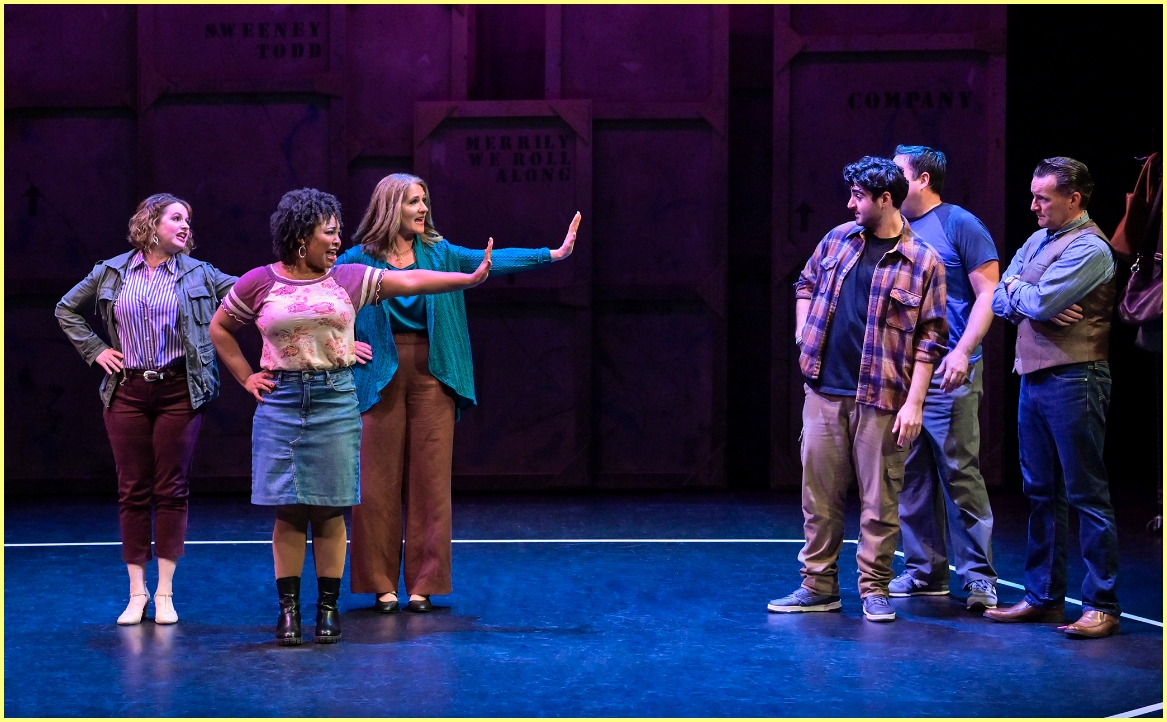
Photo Credit: Kevin Berne
Many, like “Putting it Together,” “Send in the Clowns,” “Pretty Women” and “Love is in the Air,” not to mention the sensitive, soulful “Children Will Listen,” are as familiar to theatregoers as old friends. Others such as “Loving You,” “Love’s a Bond” and “There is No Other Way” introduce audiences to lesser-known Sondheim songs. Yet, by the time the audience heads home, the actors have sung a whopping 35 songs — 36 in fact,because “Send in the Clowns” is sung twice.
” … a pleasurable two hours of theatre …”
During Kelley’s 50-year tenure at TheatreWorks, he actually mounted 18 Sondheim productions. Upon learning that it’s now “legal” to create a musical review of Sondheim’s works, Kelley said the first thing he did was ask Liberatore to collaborate with him as they have many times before.
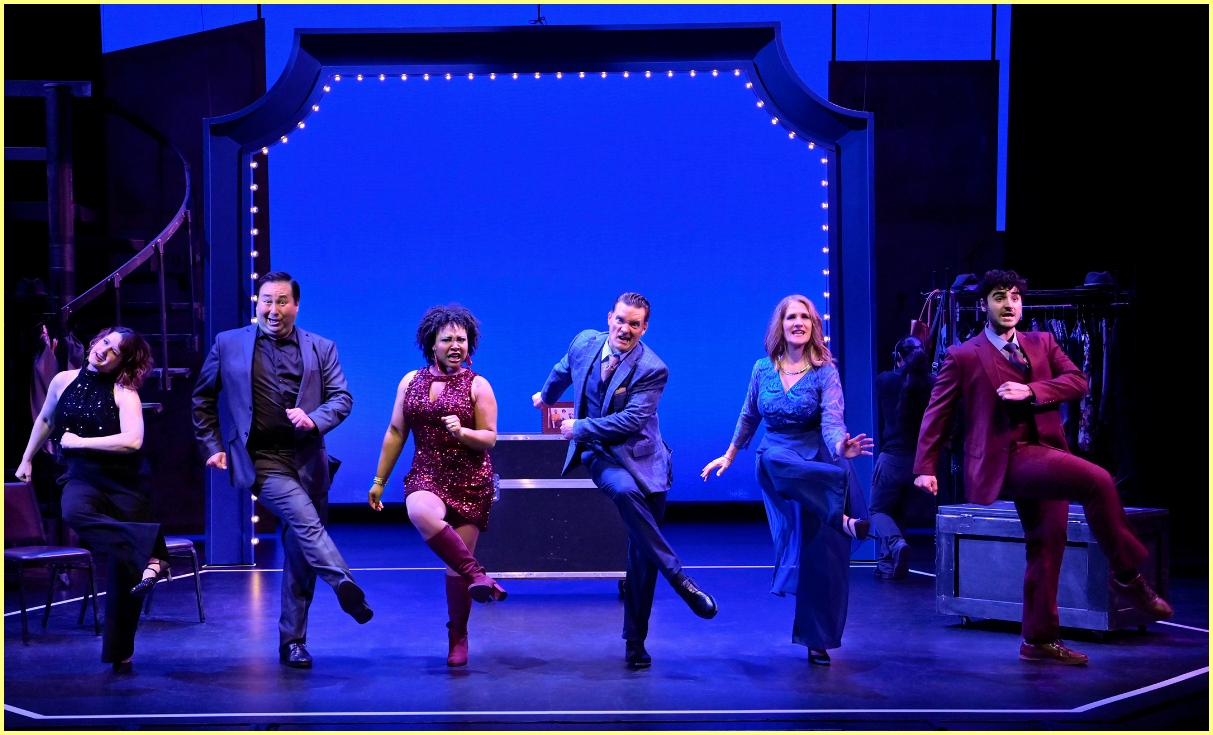
And, while not every song or performance zings, it’s likely audiences will recognize once again Sondheim’s musical genius through most of the songs sung, danced and acted here. What’s so surprising is that all of the music – which sounds both fulsome and lyrical — comes from Liberatore’s melodious piano playing and Artie Storch’s occasional drumming accompaniment.
No small credit, of course, goes to the cadre of fine performers, most particularly the diminutive Solona Husband as Sally, who acts, dances, jumps and belts out her songs with joyfulness. Nick Nakashina as Gene and Melissa WolfKlain are solid additions who know how to charm an audience with a sassy wink or nod. Rounding out the cast with equally fine performances are Anne Tolpegin as Lena, Sleiman Alahmadieh as George, and Noel Anthony as Ben.
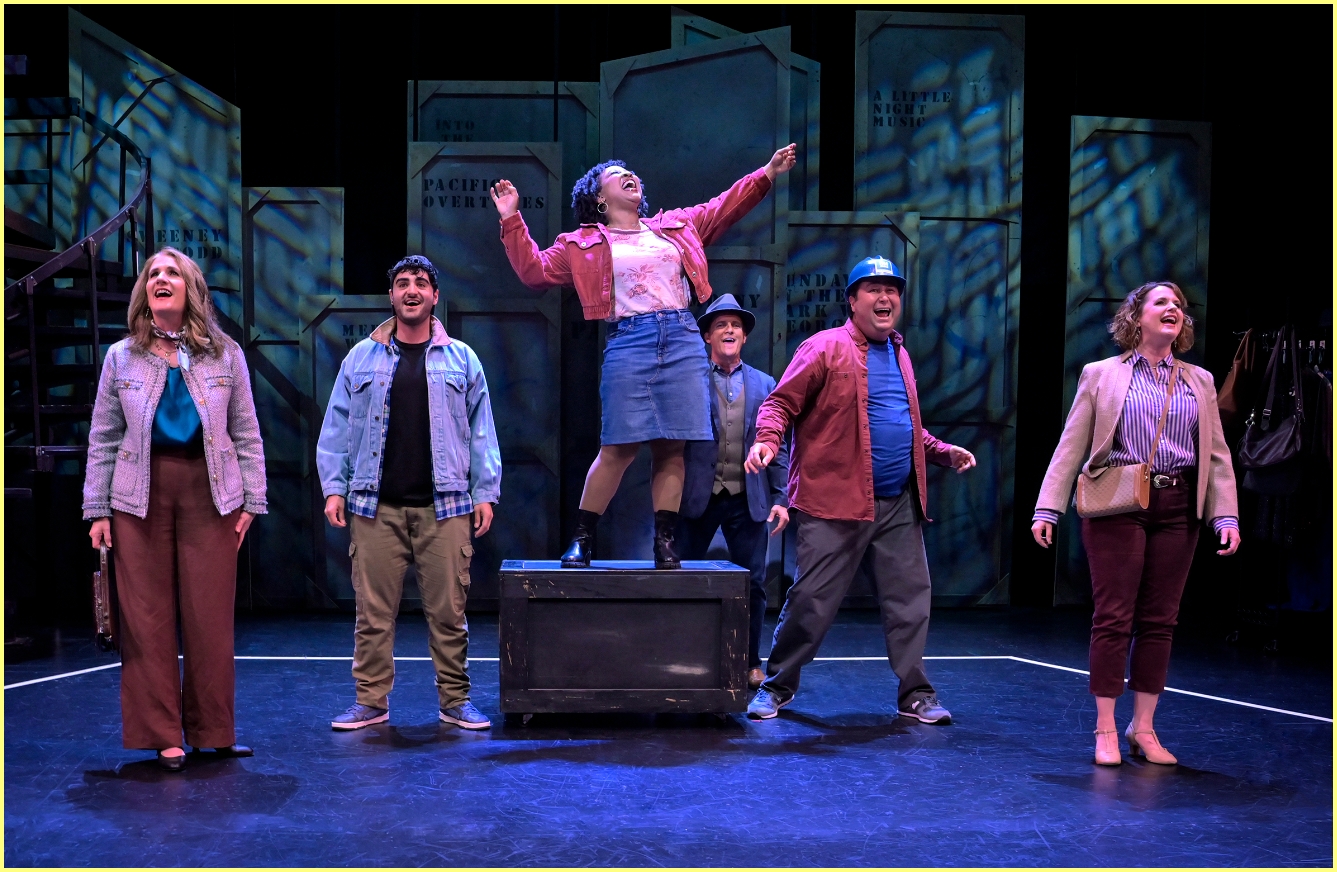
Sondheim, who passed away in 2021 at the age of 91, wrote an astonishing 334 songs in his lifetime. That’s why Kelley and Liberatore decided to concentrate on songs that are primarily focused on love – in all its iterations: first love, love lost, broken hearts, redemptive love and more. Audiences happily responded to the upbeat “Love is in the Air, ”Everybody Says Don’t,” “Can That Boy Foxtrot” and “You Could Drive a Person Crazy.” WolfKlain’s rendition of “The Wedding is Off” is another crowd pleaser.
Then comes the poignant “Send in the Clowns,” sung with heartfelt sincerity by Tolpegin, and the equally touching “We Do Not Belong Together” sung by Husband and Alahmadieh. Husband also stands out in “Our Time” with Nakashima and Alahmadieh as well. The same trio joins up in “Old Friends” and does a terrific switching hats routine.
Kelley sandwiches in touching songs like “Children Will Listen,” sung by WolfKlain and Tolpegin. with comedic ones like “Agony” sung by Nakashima and Anthony, as well as “Any Moment/Moments in the Woods,” sung by Anthony and WolfKlain, to balance out the program.
But it’s the song “Being Alive,” sung by all six performers, that ends the show on a high note. It’s a reminder of just how astounding Sondheim’s music really is.
-30-
 Aisle Seat Executive Reviewer Joanne Engelhardt is a Peninsula theatre writer and critic. She is a voting member of the SF Bay Area Theatre Critics Circle (SFBATCC). Contact: joanneengelhardt@comcast.net
Aisle Seat Executive Reviewer Joanne Engelhardt is a Peninsula theatre writer and critic. She is a voting member of the SF Bay Area Theatre Critics Circle (SFBATCC). Contact: joanneengelhardt@comcast.net
| Production | Being Alive: A Sondheim Celebration |
|---|---|
| Conceived by | Robert Kelley and William Liberatore |
| Directed by | Robert Kelley |
| Producing Company | TheatreWorks Silicon Valley and Entre Acts |
| Production Dates | Thru June 30th |
| Production Address | 1305 Middlefield Road Palo Alto, CA 94301 |
| Website | www.theatreworks.org |
| Telephone | (877) 662-8978 |
| Tickets | $37- $82 |
| Reviewer Score | Max in each category is 5/5 |
| Overall | 4.5/5 |
| Performance | 4.5/5 |
| Script | 4.5/5 |
| Stagecraft | 4/5 |
| Aisle Seat Review Pick? | YES! |
